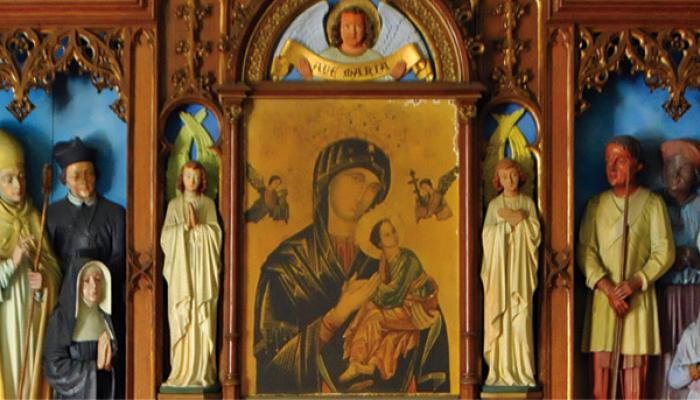
4.12 Що таке благодать?
Благодать – це дар Ісуса для нас, дар, який дає нам життя (Ів. 1:17) JІв. 1:17: TЗакон бо через Мойсея був даний, а благодать та правда з’явилися через Ісуса Христа.. Через Свою благодать Бог допомагає нам вірити, увійти у спілкування з Богом і жити по-християнськи.
Благодать змінює наше ставлення до світу: багато речей, які часто здаються такими важливими (гроші, майно, влада, ваша кар’єра), раптом стають набагато менш важливими. І інші речі стають важливішими, наприклад, любов до Бога і свого ближнього.
What is grace?
By grace we mean God’s free, loving gift to us, his helping goodness, the vitality that comes from him. Through the Cross and Resurrection, God devotes himself entirely to us and communicates himself to us in grace. Grace is everything God grants us, without our deserving it in the least.
“Grace”, says Pope Benedict XVI, “is being looked upon by God, our being touched by his love.” Grace is not a thing, but rather God’s communication of himself to men. God never gives less than himself. In grace we are in God. [Youcat 338]
What is the grace that justifies?
That grace is the gratuitous gift that God gives us to make us participants in his trinitarian life and able to act by his love. It is called habitual, sanctifying or deifying grace because it sanctifies and divinizes us. It is supernatural because it depends entirely on God’s gratuitous initiative and surpasses the abilities of the intellect and the powers of human beings. It therefore escapes our experience. [CCCC 423]
What other kinds of grace are there?
Besides habitual grace, there are actual graces (gifts for specific circumstances), sacramental graces (gifts proper to each sacrament), special graces or charisms (gifts that are intended for the common good of the Church) among which are the graces of state that accompany the exercise of ecclesial ministries and the responsibilities of life. [CCCC 424]
What does God’s grace do to us?
God’s grace brings us into the inner life of the Holy Trinity, into the exchange of love between Father, Son, and Holy Spirit. It makes us capable of living in God’s love and of acting on the basis of this love.
Grace is infused in us from above and cannot be explained in terms of natural causes (supernatural grace). It makes us—especially through Baptism—children of God and heirs of heaven (sanctifying or deifying grace). It bestows on us a permanent disposition to do good (habitual grace). Grace helps us to know, to will, and to do everything that leads us to what is good, to God, and to heaven (actual grace). Grace comes about in a special way in the sacraments, which according to the will of our Savior are the preeminent places for our encounter with God (sacramental grace). Grace is manifested also in special gifts of grace that are granted to individual christians (charisms) or in special powers that are promised to those in the state of marriage, the ordained state, or the religious state (graces of state). [Youcat 339]
Ми молимося і просимо, щоб Божа Воля Божа діяла в нас. Аби це сталося в нас, потрібна Божа Воля, тобто Його допомога і захист, бо ніхто не сильний своїми силами, але захищений поблажливістю й милосердям Божим. [св. Кипріан, Молитва Господня, розд. 14 (ML 4, 528)]





